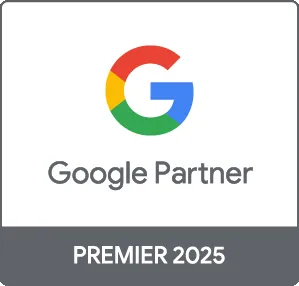Managing a successful Google Pay-Per-Click (PPC) campaign is crucial for driving targeted traffic, increasing brand visibility, and maximizing your return on investment. This guide will walk you through the essential steps for effective Google PPC campaign management, from setting objectives to optimizing your ads for better performance. Whether you are a small business owner or a digital marketing professional, these insights will help enhance your PPC strategies.
Understanding Google PPC Campaigns
PPC advertising allows businesses to display ads on Google’s search results and partner sites, paying only when users click on their ads. This model makes PPC a cost-effective way to reach potential customers instantly, unlike organic search results which take longer to achieve.
1. Define Clear Objectives
Before launching your Google PPC campaign, it’s essential to determine your goals. Common objectives include:
- Increasing Brand Awareness: Target a broad audience to get your brand in front of potential customers.
- Generating Leads: Encourage users to fill out a contact form or sign up for a newsletter.
- Driving Sales: Direct users to your product pages to boost purchases.
2. Conduct Thorough Keyword Research
Keyword research is the foundation of a successful PPC campaign. Use tools like Google Keyword Planner to find relevant keywords that your target audience is searching for. Consider both:
- Short-Tail Keywords: General keywords that have a high search volume but also significant competition.
- Long-Tail Keywords: More specific phrases that may have lower search volume but often result in higher conversion rates.
3. Create Compelling Ad Copy
Your ad copy should be clear, engaging, and relevant to the keywords and landing pages. Key points include:
- Focus on Benefits: Highlight what users will gain by clicking your ad.
- Include a Strong Call-to-Action (CTA): Encourage users to take action, such as “Shop Now” or “Learn More.”
- Utilize Ad Extensions: Add extensions to provide more information, such as site links or contact details.
4. Optimize Your Landing Pages
Your landing page should match the intent of your PPC ad. Ensure it is:
- Mobile-Friendly: A responsive design is crucial as many users browse on mobile devices.
- Fast Loading: Page speed affects user experience and can lower bounce rates.
- Clear and Focused: The landing page should guide users towards the desired action without distractions.
5. Monitor and Adjust Your Campaigns
Regular monitoring is key to maximizing your Google PPC campaign's performance. Key metrics to track include:
- Click-Through Rate (CTR): Indicates how effective your ad copy is.
- Conversion Rate: Shows the percentage of users who complete the desired action.
- Cost Per Click (CPC): Helps you manage your budget and ensure profitability.
Conclusion
Effective Google PPC campaign management is not a one-time task but an ongoing process that requires attention and adjustment. By defining clear objectives, conducting thorough keyword research, crafting compelling ad copy, optimizing landing pages, and monitoring performance, you can create successful campaigns that drive results for your business. At Prebo Digital, we specialize in Google PPC advertising strategies tailored to your unique business needs. Contact us today for a personalized consultation on how we can elevate your digital marketing efforts!





